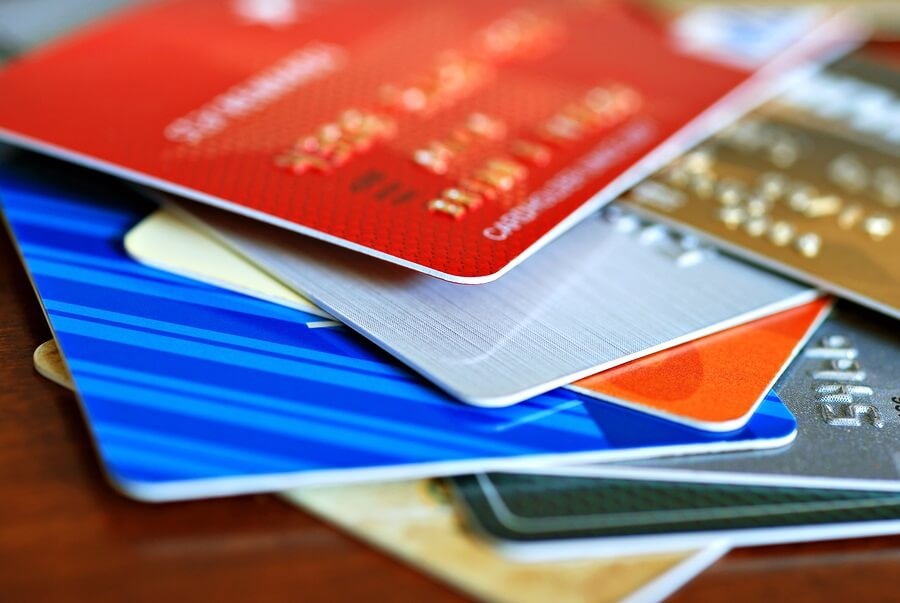
Building an excellent credit history is like building a family. Over time, you work hard to apply basic principles of love, fairness, discipline, and fun. As your children grow, you start to see the fruits of your labor. However, your work as a parent is never done—you’re always mindful of your children, no matter how old they are.
Your credit history works the same way. You apply basic principles, and eventually you start to see evidence of higher credit scores. However, the work is never done.
I’m going to lay out what I consider to be three of the most important principles: credit utilization, late payments, and credit history. But before I get there, I want to review what “credit history” actually means.
What Is Credit History?
Credit history is a phrase that describes your patterns and behaviors with money you’ve borrowed from someone else. It’s like a diary of everything you’ve done in your past financial life.
When a lender looks at your credit history, they’re going to focus on five things:
- Utilization: The ratio of credit card balances to credit card limits
- Payment History: The number of late payments you’ve had in the past seven years
- Length of credit: The average age of all your accounts
- New credit: How many accounts you have recently opened
- Credit types: What kind of loans and credit lines you have
Credit types and length of credit play a small role in your overall history. Utilization and payment history are the keys, and new credit falls in the middle somewhere.
All of these factors combine to create your credit scores.
Keep Your Credit Card Balances Low in Relation to Your Credit Limit
In my discussions with credit experts like Rod Griffin from Experian, I’ve learned that credit utilization is the biggest factor in your credit history.
Here’s how it works: Let’s say you’ve got three credit cards. All of them have a credit limit of $10,000. Your balances for the three cards are:
- Card 1: $0 (0% of the limit)
- Card 2: $2,000 (20% of the limit)
- Card 3: $2,500 (25% of the limit)
The credit bureaus that look at these three balances think, “Okay, this person is using $4,500 of their $30,000 credit limit. Not bad. And none of the cards are at 30% utilization or higher. Even better.”
The 30% mark is what lenders and creditors view as the point at which you become a risky borrower. If the balance of Card 3 went up to $3,000, that would be a red flag.
Why? Because it indicates you might be in financial trouble. You’re using borrowed money instead of cash to cover your expenses. As soon as you hit and surpass the 30% mark on any card, your credit scores will drop.
My advice is to keep a close eye on your credit card balances. I think we’ve all been taught that maxing out your cards is irresponsible—and it is—but that maxim is a half-truth. Credit bureaus and lenders believe it’s irresponsible to push your credit card balance above 30% of your limit.
Live by the 30% rule and you’ll see lower rates on mortgages, credit cards, and loans.
Don’t Make a Late Payment or You’ll Suffer… For Up to Seven Years
The second way you can build a solid credit history is to avoid late payments. This is a bit of a misleading tip, because it’s not just any late payment that can affect your credit scores.
Only payments that are 30 days late or more will tarnish your credit history. So, if your car payment is due on the first day of the month, you can pay your bill up to 29 days after that and still maintain a clean credit record.
Don’t Let Your Bills Go 30 Days Past Due
Once you hit the 30-day mark, the lender will report that late payment to the three credit bureaus: Experian, TransUnion, and Equifax. Your late payment becomes what’s known as a 30-day delinquency.
The credit bureaus will add your delinquency to all the factors they consider when crafting your score. Within a week or two, you should see your score drop … considerably.
Is it unfair? Sometimes. We’ve all gone through seasons where we’re struggling heavy-eyed through the first six weeks of having a baby, only to realize we’ve missed a credit card payment or forgot about our car payment.
Does that one trip-up mean we’re a risk? Probably not, but that’s how the system works. The more late payments you make, the lower your score will go. The penalties get worse as your payments get later: 60-day and 90-day delinquencies cause serious damage.
Make Sure All Loans and Cards Are on Auto-Pay
The way I’ve managed to keep my family’s credit history clean is by putting all our bills on auto-pay. Go to each credit card you use and sign up for automatic payments.
Do the same for your mortgage payments and student loan payments, and don’t forget to make sure your car payments are on auto-pay, too.
Automating these payments can protect you from seasons of life when we’re more forgetful than normal.
A Quick Tip About Credit Repair Agencies
Last year I talked with John Ulzheimer, a credit expert who helps consumers understand their credit history and credit scores. During our conversations, the subject of credit repair agencies came up. I’ll never forget what he said: “Credit repair agencies can’t do anything for you that you can’t do yourself.”
If you’ve got a late payment on your credit report, you can dispute the delinquency with all three reporting agencies through their websites. If you notice someone has fraudulently opened an account in your name, file a police report and send that report to the credit bureaus.
Any credit repair agency that tells you they have special powers to remove information from your credit report is an agency you should run away from.
If you’re looking for good credit/debt counselors, check out Credit.org.
Become an Expert in Your Credit History
We live in a time when sites like Credit Karma give you your TransUnion and Equifax credit scores and histories for free. Take advantage of that by signing up as soon as you can.
I signed up for Credit Karma a few years ago on a whim because it was free and they didn’t require tons of personal information on sign-up. I now use the site weekly to keep tabs on our scores, which, as you’ve probably guessed, are the quickest way to figure out what’s going on with our credit history.
Your credit scores are updated weekly along with your credit history. If you see that your score has dropped, open up your credit history and see what it says. You may find a new account that you didn’t authorize, or you might see that one of your credit cards has passed the 30% limit.
Some Final Thoughts on Credit History
It’s not easy being a parent, and it’s not easy building a good credit history. You have to be mindful of the everyday decisions you make, knowing that these little choices have big impacts over time.
It’s not just the little decisions that have an impact on your future, either. You’ll often find yourself confronted with considerable financial choices. If you make mistakes, know that over time you can correct them by practicing sound principles of credit:
- Keep your utilization low
- Don’t make late payments
- Put your bills on auto-pay
- Check your credit history for errors
With each of these principles in place, you’ll be able to avoid the most common mistakes consumers make.
The reward? Not only will you have peace of mind knowing your bills are up to date, but you’ll also have the luxury of higher credit scores. Those scores will get you lower interest rates, which can save you thousands of dollars over the life of your bigger loans.
And guess where that extra money can go? To building the future of those kids you love so much.
J.R., a reporter for HighYa.com., uncovers the hard truths about personal finance through in-depth research and interviews with experts. He has written extensively on topics including credit cards, credit scores, debt, financial advisors and other personal finance issues.





